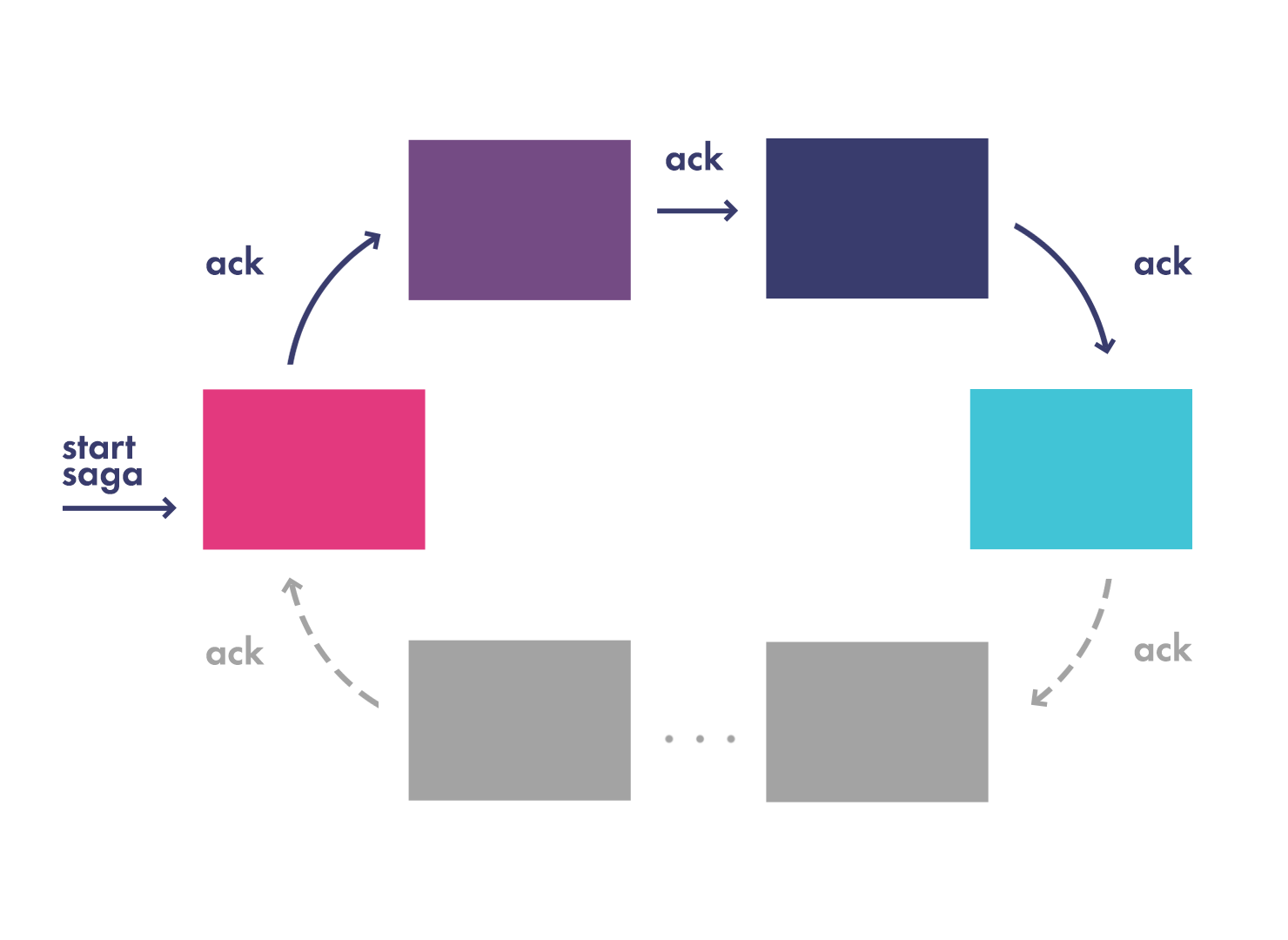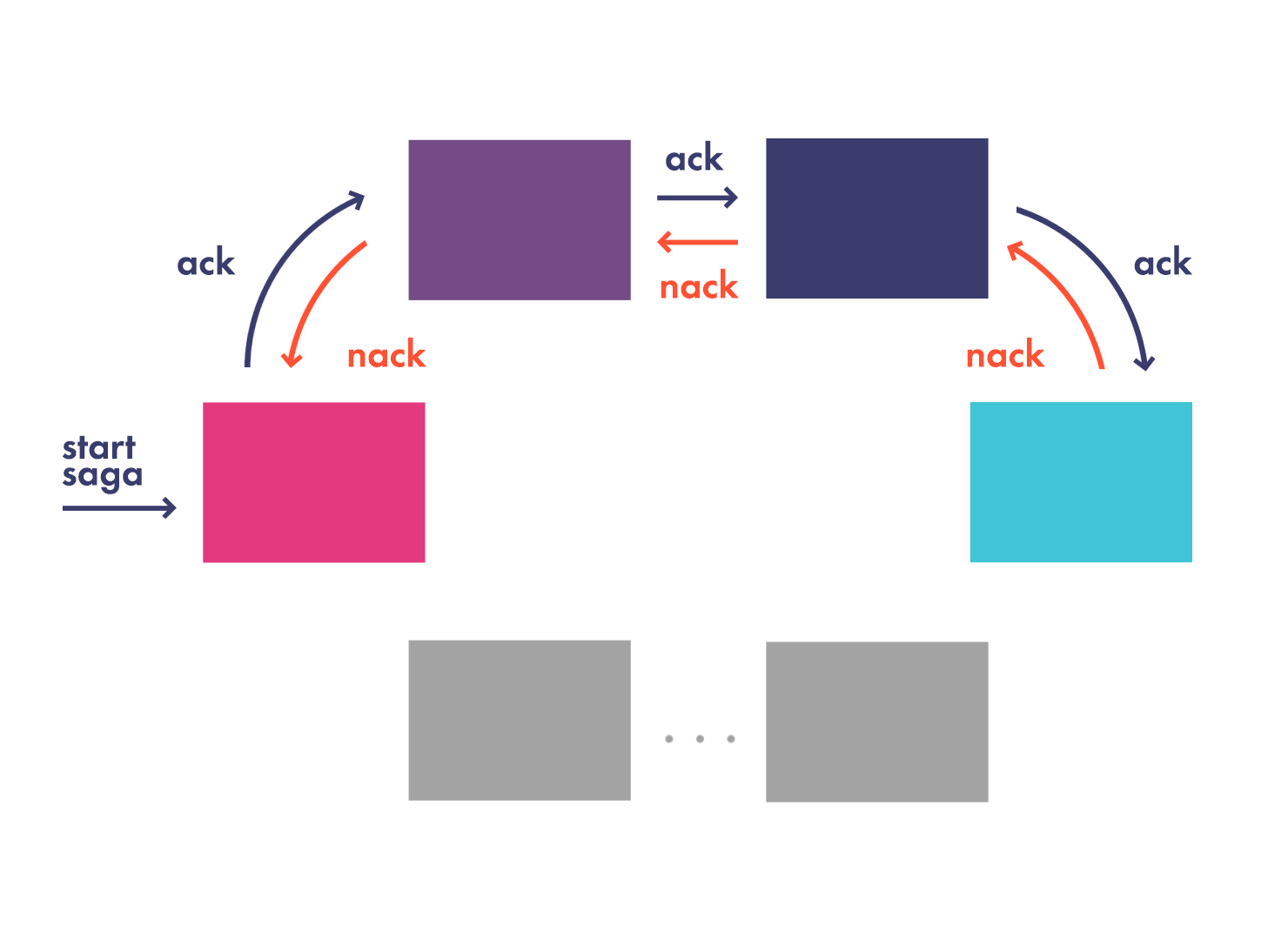How would you model distributed transaction where steps (transactions) are sequential, and current state depends on before?
Example: you are buying tickets to cinema. If you select places and next during payment you run out of money, reserved seats should return to the common pool and be available.
Business logic responsible for booking seats is handled by different process from payment. Components are deployed on different hosts, possibly different availability zones. Saga to the rescue: link
...
├── booking - component responsible for starting saga
├── domain
├── infrastructure - boilerplate infra code for all components
├── order - component responsible for place an order
├── payment - component responsible for place an payment
└── system-tests - end to end tests: happy path & fail cases scenarios
Transactional components - booking, order and payment communicate using apache kafka by sending an event
- created
- confirmed
- cancelled
Any cancell event should rollback saga. It means - if payment can not compleated it emites cancel event and previous commited transactions, in this case order and booking, will be rollbacked
In order to simplify side effect as much as possible transaction in this example is just creation a json file on disc
Run this command before
mkdir -p /tmp/test/db/bookings \
/tmp/test/db/orders \
/tmp/test/db/paymentsSolution contains different types of tests. Unit, integration and system tests. Last two categories of tests use kafka infrastructure inside docker.
Tests for booking, order and payment components are starting docker-compose before execution. Please take a look at the each docker-compose.yml in related module for more details.
system-tests module is dedicated to verify saga implementation against topology of components.
It means, kafka, zookeeper and all three components are started together.
Sample test looks like below.
@SystemTest
fun `distributed transaction should run successfully when all components are up and running`() {
logContainers()
val transactionId = uuid()
val response = POST("http://$bookingHost:$bookingPort/api/v1/bookings/$transactionId")
await("booking is confirmed").pollDelay(ONE_SECOND).atMost(ONE_MINUTE).until {
val statuses = GET("http://$bookingHost:$bookingPort/${location(response.body)}")
log.info("status for {}: {}", transactionId, statuses.body)
isConfirmed(statuses.body, transactionId)
}
} @SystemTest
fun `should book successfully order even when payment component is not available for defined number of time`() {
docker.pause("system_test_payment")
logContainers()
val transactionId = uuid()
val response = POST("http://$bookingHost:$bookingPort/api/v1/bookings/$transactionId")
simulateUnavailability("system_test_payment")
await("booking is confirmed").pollDelay(ONE_SECOND).atMost(ONE_MINUTE).until {
val statuses = GET("http://$bookingHost:$bookingPort/${location(response.body)}")
log.info("status for {}: {}", transactionId, statuses.body)
isConfirmed(statuses.body, transactionId)
}
}TODO
./gradlew clean \
:booking:build \
:order:build \
:payment:build \
systemTest --info
or one by one
./gradlew clean :booking:build --info
./gradlew clean :order:build --info
./gradlew clean :payment:build --info
All components must be build before running this comand
./gradlew systemTest --info
- Ports during tests are not randomized

